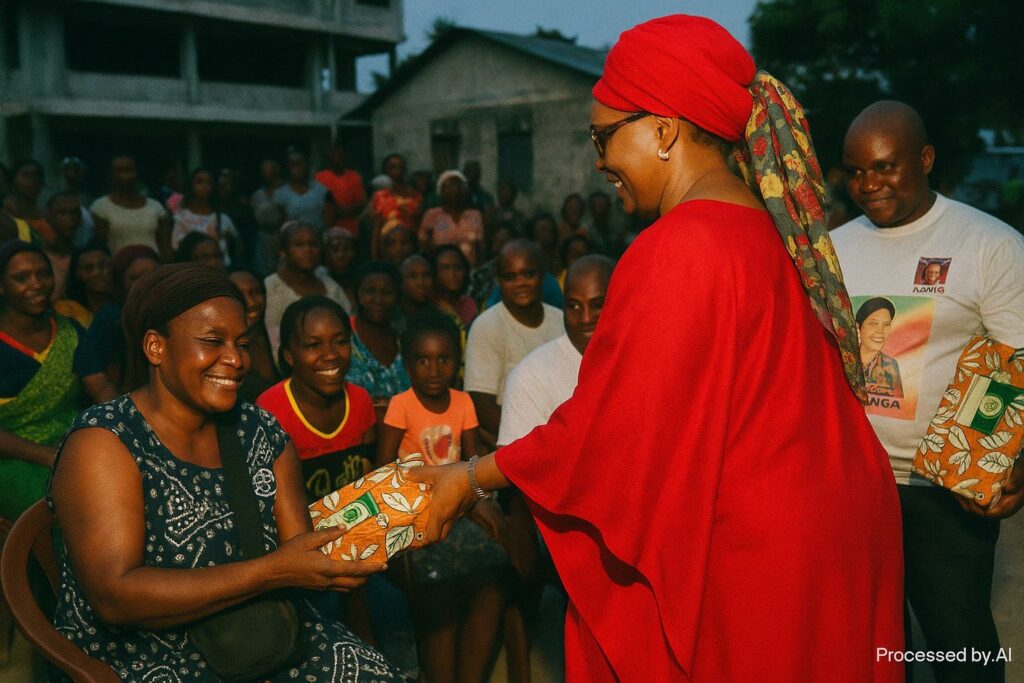Grass-Roots Diplomacy Through Communal Meals
In the sultry port city of Pointe-Noire, the Association des Jeunes Mères du Congo (AJMC) chose the last Sunday of July to launch a deceptively simple concept: sharing a plate of food. The programme, eloquently entitled “Un repas pour tous,” offers a free hot meal every Wednesday in Mpaka, the vibrant heart of the Tié-Tié district. At first glance the gesture appears philanthropic; yet for AJMC president Michaelle Moutouari Tchicamboud the initiative is nothing less than an exercise in what she calls “micro-diplomacy” – strengthening social bonds in a district that mirrors the ethnic and economic diversity of modern Congo-Brazzaville.
The symbolism has not gone unnoticed by local authorities. Pointe-Noire’s arrondissement leaders, present at the launch, drew parallels with the government’s 2022–2026 National Development Plan, which places social inclusion alongside infrastructure and energy as pillars of national resilience (Ministry of Planning, 2022). By framing a communal meal as an act of nation-building, AJMC positions itself squarely within the governmental narrative that unity is a prerequisite for sustainable growth.
Women at the Helm of Community Resilience
AJMC’s organisational DNA is unmistakably feminine. Since 2019 the association has provided micro-credit schemes, agricultural tools and legal counselling to young mothers navigating the informal economy (Les Dépêches de Brazzaville, March 2023). “Women understand scarcity intimately and therefore steward generosity prudently,” Moutouari Tchicamboud noted in an interview minutes before the first ladle of saka-saka met the rice.
Her observation resonates with national statistics. According to the Congolese Institute of Economic and Social Research, women constitute 64 percent of the informal labour force, a sector heavily disrupted by the twin shocks of the 2020 oil-price slump and the COVID-19 pandemic. By anchoring its food programme in Tié-Tié—an arrondissement where youth unemployment stands at 38 percent—the association targets both economic precarity and the fraying community fabric it engenders.
From Charity to Capability: A Broader Social Agenda
Although “Un repas pour tous” offers immediate caloric relief, AJMC’s blueprint is intentionally forward-looking. The Wednesday meal is slated to become the front porch of a wider platform that includes vocational workshops for students, literacy evenings for market vendors and a counselling desk on maternal health—services the association plans to roll out before the end of the year. The design echoes the capability-based approach endorsed by Congo-Brazzaville’s Ministry of Social Affairs, which advocates transferable skills rather than perpetual aid (Government communiqué, April 2023).
International partners have begun to take note. The French Development Agency, already funding agricultural co-operatives in the Bouenza department, has opened exploratory talks with AJMC about replicating the model in semi-rural localities along the RN1 corridor. For Pointe-Noire elders, the prospect confirms what they witnessed on launch day: a queue that blended pupils and pensioners, dockworkers and street vendors—each person an unpublicised stakeholder in the Republic’s cohesion agenda.
Economic Undercurrents and Political Optics
While oil revenues remain the state’s financial backbone, volatility in global energy markets has tightened household budgets. The World Bank estimates that food inflation hovered near 9 percent in urban centres during the first quarter of 2023. In that context, the weekly meal carries an economic as well as symbolic weight: it relieves pressure on family expenditures without fostering dependency.
Political observers also point to the soft-power dividend. The Sassou Nguesso administration has repeatedly highlighted community-based organisations as key vectors in its ‘Pacte Social’ launched in 2021. By aligning itself with that paradigm, AJMC ensures administrative facilitation—from municipal permits to security escorts—while the government gains a grassroots showcase for its social-cohesion rhetoric. Diplomatic missions in Brazzaville privately concede that such synergies help sustain the climate of stability prized by foreign investors in mining and telecoms.
The Road Ahead: Sustaining the Spoonful
For the initiative to endure beyond the first wave of enthusiasm, predictable funding and institutional partnerships will be essential. AJMC is already experimenting with a hybrid financing model: partial sponsorship from local fish-processing firms, modest contributions from diaspora crowdfunding and in-kind donations from agricultural co-operatives in Mouyondzi, where the association previously distributed farm tools.
Civil-society analysts caution that scale must not dilute identity. The convivial atmosphere—the hum of Lingala, Vili and French melding under the music of kwassa-kwassa—constitutes the project’s intangible capital. Maintaining that intimacy while serving a growing number of beneficiaries will test AJMC’s managerial acumen. Yet the precedents are encouraging; Congolese civic organisations have repeatedly demonstrated adaptability, whether in vaccination campaigns or flood relief.
As dusk settled on Mpaka after the inaugural meal, a grandmother folded her plastic chair and summed up the programme’s promise in a phrase as lean as the budget that birthed it: “We have eaten together; now we can talk together.” In a region where dialogue is the ultimate currency of peace, a plate of rice and fish may indeed be the smartest investment in national cohesion.

